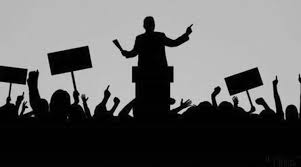W. Kidd & J. A. Vitriol
Political Psychology
First published: 27 September 2021
Abstract
Voters commonly revise their political beliefs to align with the political leaders with whom they strongly identify, suggesting voters lack a coherent ideological structure causally prior to their political loyalties. Alternatively, voters may organize their preferences around nonideological concepts or values, such as moral belief. Using a four-wave panel study during the 2016 election, we examine the relationship between voters' own moral foundations and their perceptions of the candidates' moral beliefs. We observed a bidirectional relationship among Republicans, who revised both their own moral beliefs and their perceptions of Donald Trump to reduce incongruities. In contrast, Democrats revised their perceptions of Hillary Clinton to align with their own moral beliefs. Importantly, consistency between voters' and political candidates' moral beliefs was more common among partisans and led to polarized evaluations of the two candidates on Election Day.
From a PsyPost interview:
Trump supporters also appeared to adjust their moral foundations from to align more closely with their perceptions of Trump’s moral foundations. Perceptions of Trump at wave two changed how his supporters perceived their own moral beliefs at wave three. But this pattern was not found among Clinton supporters, who did not adjust their own moral beliefs.
“Political leadership is moral leadership,” the researchers told PsyPost. “Many voters revise even their fundamental views of what they describe as right and wrong based on their perceptions of the candidates they support. Ideas and positions that might have seemed out of bounds can become normalized very quickly if they receive support from political leaders.”
“That voters adjust their ‘perceptions’ of the candidates is also likely a reason partisan conflict often seems so intractable, as voters from each party may not even share a common understanding of the candidates in question, limiting any form of reasoned debate.”
